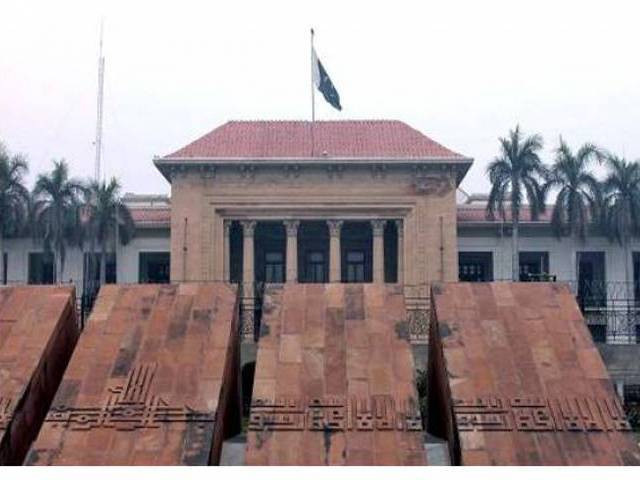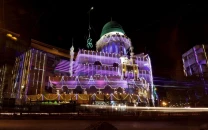Uncertainty clouds Punjab PA polls
While PTI lauds LHC order, PML-N taps into 'ambiguities' for favourable legal answer

Despite the LHC pronouncing its much-awaited order to immediately announce the date for elections in Punjab, the fate of the provincial assembly still hangs in the balance as uncertainty buries a definite legislative answer to the issue.
With strong hallmarks of another high-profile case lurching towards the court of last resort, legal experts believe that ultimately, the matter regarding holding of election will be decided by the Supreme Court as political parties interpret the high court’s decision differently.
While PTI extols the decision, the legal minds of the ruling party tap into the "ambiguities" for a favourable legal answer to potentially defer the polls.
For instance, a legal member of PML-N has referred to paragraph 12 of the order wherein it is held that without any shadow of doubt, 90 days’ time is mandated in the Constitution” for fixing/announcing the “date of election” of the provincial assembly after its dissolution in terms of Article 105 and timeframe provided under Articles 112 and 224(2) of the Constitution.
According to his interpretation, the Election Commission of Pakistan (ECP) will have to announce the date of the election within 90 days and not the holding of the election.
About the last two lines pertaining to the holding elections no later than ninety days as mandated by the constitution, the legal mind of the ruling party insisted that the instructions implied that the electoral watchdog should have announced a date for elections within a period of 90 days and shouldn’t miss that deadline.
He hoped that if the ECP agreed with this interpretation there was a chance that the PTI will approach the Supreme Court seeking a date for the elections.
On the other hand, PTI Lawyer Chaudhry Faisal Hussain has lauded the LHC order to hold the election no later than 90 days.
He noted that as was expected, the LHC has done "a great job because the judges are guardians of the constitution", stressing that the ECP and other institutions should adhere to the decision.
He cautioned extending the period for holding elections would be akin to applying the “General-Zia formula”, which would spell “disaster for the country”.
Faisal also said that the LHC’s order would be upheld in case it is challenged in the apex court.
Meanwhile, lawyer Hafiz Ahsaan Ahmad Khokhar maintained that as per Article 224A of the Constitution, a general election to the National Assembly or a provincial assembly shall be held within a period of sixty days immediately following the day on which the term of the assembly is due to expire, unless the assembly has been sooner dissolved, and the results of the election shall be declared not later than fourteen days before that day.
He said that in case the assembly is dissolved under Article 58 or Article 112 of the Constitution, the president, or the governor, as the case may be, the election would be held within 90 days from the day of dissolution of the assembly and accordingly a caretaker government would be constituted for the interim period till the election process is completed.
He added that the situation in Punjab and K-P in the wake of the dissolution of legislatures warranted the same procedure “but despite lapse of more than two weeks neither the election date has been given by the governor nor has the ECP started the process for holding such election”.
Khokhar said the period described in the Constitution as a cut-off date for holding the election in 90 days in case the assembly is dissolved before its regular term, is mandatory and could not be deviated for any excuse, which in the present case, the high court has rightly interpreted and legally issued directions to ECP to announce the election schedule for holding the election within 90 days after consultation with the governor as the assembly was dissolved under Article 112 of the Constitution.
He emphasised that the election body was under a constitutional obligation to hold free, fair and transparent polls within the prescribed period and “this has been time and again explained by superior courts through their various judgments”.
The lawyer further said that two directions have been issued in the concluding paragraph of the judgment to first announce the date of elections after consultation with the governor and then to hold elections within 90 days.
The LHC has the constitutional jurisdiction to entertain such cases and to pass judgment for the adherence to the constitution, and in the present case, it has rightly and legally so.
“If the present judgment of the high court directing the ECP to hold the election within 90 days would be challenged in Supreme Court, there would be a limited chance for its success as there is no deviation in the judgment from any constitutional provision or superior courts’ precedents, which could make a case before the apex court."
Khokhar said that as the LHC has bound the commission to the announcement of the date of the election and for holding the polls within 90 days, therefore all state institutions should facilitate and provide cooperation with both in terms of finance and funding as per various provisions of the constitution and under the Election Act 2017.
He said that following the provisions of the Constitution is best for the country, for rule of law and for democracy, thus in view of the above constitutional proposition every institution should respect and adhere to the spirit of the constitution.



















COMMENTS
Comments are moderated and generally will be posted if they are on-topic and not abusive.
For more information, please see our Comments FAQ